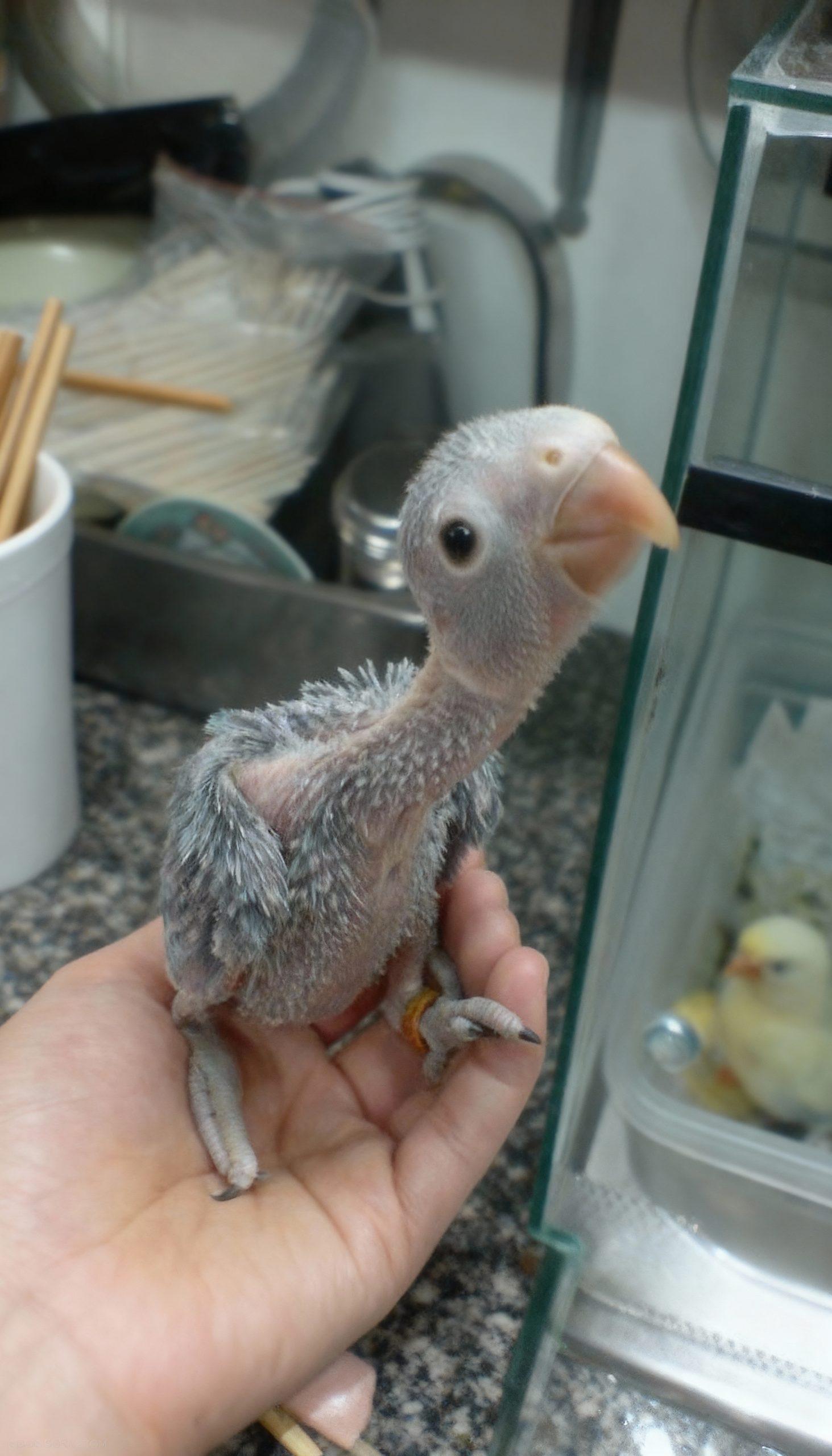The air in the aviary was thick with the usual symphony of squawks and chirps, a cacophony that usually brought a smile to Elias’s face. As a seasoned avian rescue worker, he’d seen it all: vibrant macaws with clipped wings, shy cockatiels recovering from neglect, and the occasional grumpy parrot with an attitude as grand as its plumage. But the sight that greeted him this particular Tuesday morning sent a chill down his spine, silencing even the most boisterous of birds. Tucked precariously beneath a withered fern, barely visible amidst the scattered seeds, was a tiny, featherless creature, no larger than his thumb. Its skin was a delicate pink, its eyes wide with a fragile innocence, and a single, almost imperceptible tremor ran through its tiny body. It was a baby parrot, clearly abandoned, and barely clinging to life. The odds were stacked against it, a grim reality Elias knew all too well. Yet, as he gently cupped the minuscule bird in his palm, a spark of determination ignited within him. This wasn’t just another rescue; this was a fight for survival, a testament to resilience, and a journey he knew, deep down, would be anything but ordinary.

The first few days were a blur of sleepless nights and meticulous care. Elias, armed with a tiny syringe and specially formulated hand-feeding mixture, became the chick’s sole lifeline. He named her Pip, a small name for a small bird, hoping it would bring her luck. Pip’s progress was agonizingly slow. She struggled to gain weight, her fragile immune system battling against unseen threats. There were moments when Elias doubted if she would make it, moments when he felt the heavy weight of impending loss. But then, a tiny peep, a flutter of a nascent wing, or a slight tilt of her head towards his voice would renew his resolve. It was during one particularly bleak evening, as a storm raged outside, that Pip, in a sudden burst of energy, let out a surprisingly strong squawk, her tiny beak opening wide as if demanding more food. It was a turning point, a defiant declaration of life against all odds.

As weeks turned into months, Pip began to transform. Her sparse fuzz gave way to soft, downy feathers, a mottled grey that hinted at the vibrant plumage to come. But her physical development wasn’t the only surprise. Pip, it turned out, had an extraordinary personality. She wasn’t just playful; she was a mischievous mastermind. Her favorite pastime became “hide-and-seek with Elias’s car keys,” a game that often ended with Elias frantically searching for his misplaced belongings, only to find Pip proudly perched on a bookshelf, jingling them triumphantly. She also developed a peculiar fascination with Elias’s morning coffee, attempting to dip her beak into the steaming mug with alarming regularity, much to his exasperation and amusement.

One day, while Elias was attempting to teach Pip simple words, she did something truly astounding. Instead of repeating “hello” or “cracker,” she tilted her head, looked him directly in the eye, and perfectly mimicked the complex melody of his phone’s ringtone. Elias, momentarily stunned, could only stare. It wasn’t just imitation; there was a nuanced understanding in her rendition, a playful twist to the familiar tune. This wasn’t just a clever parrot; this was a parrot with an uncanny ability to learn and adapt, a talent that would soon lead to even more remarkable discoveries.







